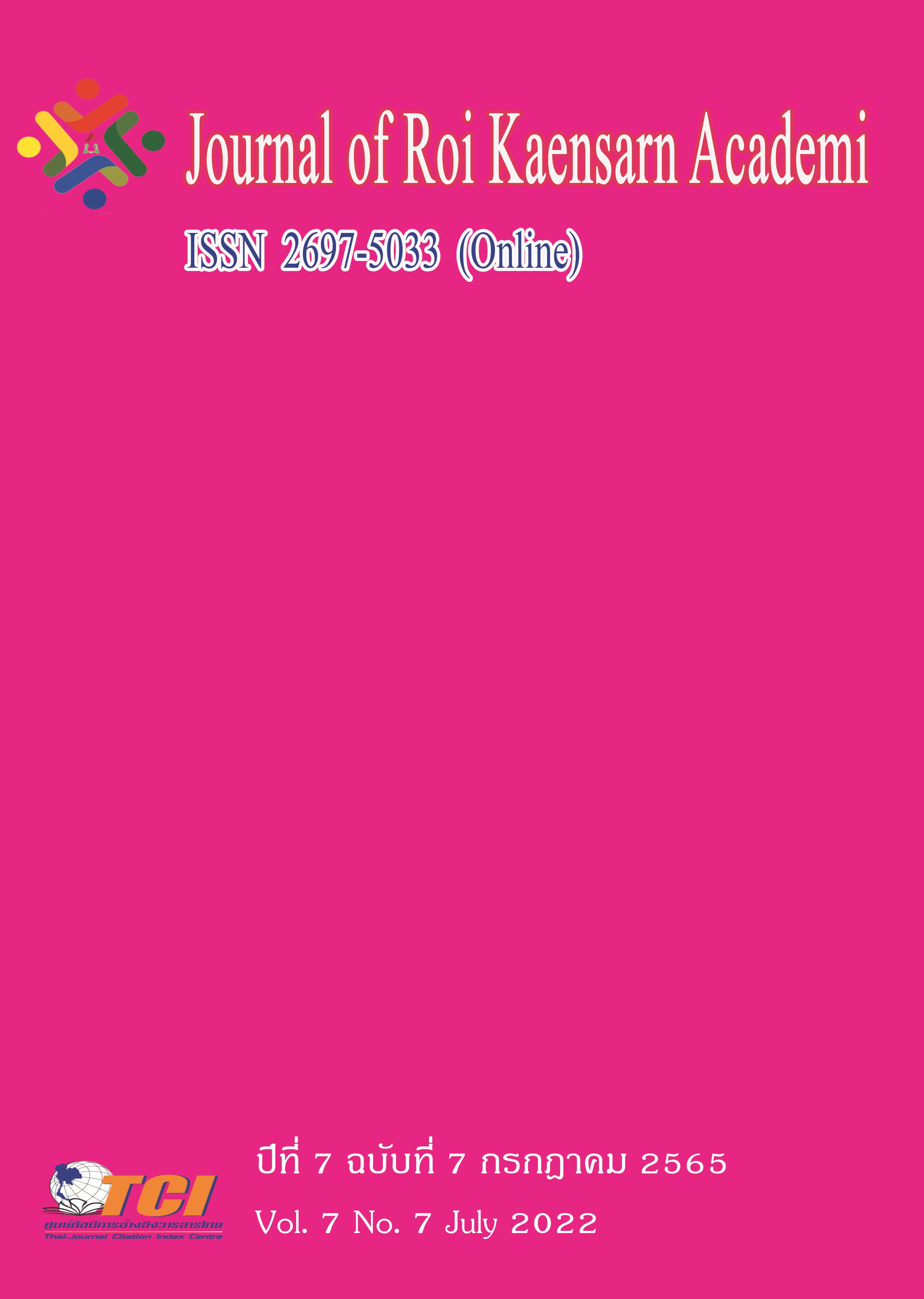The Development of Vocabulary Acquisition for Thai Kindergarteners through Digital Storytelling (DST)
Main Article Content
บทคัดย่อ
While Digital Storytelling (DST) is an effective teaching and learning resource that has been implemented at many educational levels, particularly in young learner classrooms, its effectiveness in developing vocabulary acquisition of Thai EFL kindergarteners is still understudied. This study investigated the effectiveness of Digital Storytelling (DST) on very young learners’ vocabulary acquisition. A group of 22 kindergarteners aged between four and five years old was exposed to ten target words selected from two types of Digital Storytelling (DST) – a combination of a story and animation, and a combination of a song and animation. Wilcoxon Signed Rank Test and Cohen’s d were adopted to compare the mean scores and observe the effect size of both combinations of Digital Storytelling (DST) respectively. Additionally, content analysis was adopted for qualitative data from the interview. Results indicated that both combinations significantly improved learners’ vocabulary acquisition at the significance level of .05. This study also highlighted the effectiveness of Digital Storytelling in that both song and story could enhance the kindergarteners’ vocabulary growth greatly. Moreover, the song was selected as their favorite choice the most. The implementation of digital storytelling in kindergarten classrooms could support learners to improve their vocabulary size effectively and positively.
Article Details
เอกสารอ้างอิง
Albaladejo, S. A., Coyle, Y., & de Larios, J. R. (2018). Songs, stories, and vocabulary bacqui sition in preschool learners of English as a foreign language. System, 76, 116-128.
Anderson, K. T., & Chua, P. H. (2010). Digital storytelling as an interactive digital media context. Educational Technology, 32-36.
Asher, J. (1977) Learning Another Language Through Actions: The Complete Teacher’s Guidebook. California: Sky Oaks Productions.
Carter, R., & McCarthy, M. (2014). Vocabulary and language teaching. Routledge.
Cohen, J. (1988). Statistical power analysis for the behavioral sciences (2nd ed.). Lawrence Erlbaum Associates, Inc. doi:10.24093/awej/vol10no3.6
Gentner, D. (1982). Why nouns are learned before verbs: Linguistic relativity versus natural partitioning. Center for the Study of Reading Technical Report; no. 257.
Hampu, L. O. (2018). Using Song and Story-Telling in Mastering English Vocabulary for Elementary Students. Scope: Journal of English Language Teaching, 1(2), 149-158.
Kelly, S.W. (2012) Incidental Learning. In: Seel N.M. (eds) Encyclopedia of the Sciences of Learning. Springer. doi:10.1007/978-1-4419-1428-6_366
Komol, T., & Sripetpun, W. (2014). Vocabulary learning strategies employed by undergraduate students and its relationship to their vocabulary knowledge. The 3rd International Conference on Humanities and Social Sciences April 2, 2011 Faculty of Liberal Arts, Prince of Songkla University Proceedings- Factors Affecting English Language Teaching and Learning.
Kirk, V. (2021). Understanding Multiple Intelligences and Learning Styles. Connections Academy. Retrieved November 2021, from https://www.connectionsacademy.com /support/resources/article/learning-styles-multiple-intelligences
McDonough, S. (1981). Psychology in foreign language teaching. London: Routledge.
Robin, B. (2006, March). The educational uses of digital storytelling. In Society for Information Technology & Teacher Education International Conference (pp. 709-716). Association for the Advancement of Computing in Education (AACE).
Setoh, P., Cheng, M., Bornstein, M., & Esposito, G. (2021). Contrasting lexical biases in bilingual English–Mandarin speech: Verb-biased mothers, but noun-biased toddlers. Journal of Child Language, 1-24. doi:10.1017/S0305000920000720
Schmitt, N. (2010). Researching vocabulary: A vocabulary research manual. Springer.
Tunçarslan, H. K. A. (2012) Rising teaching instrument for very young learners: Information and Communication Technologies (ICT).
Wilkins, D. A. (1972). Linguistics in language teaching (Vol. 111). London: Edward Arnold.

